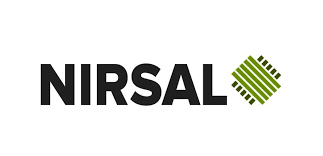The Nigeria Incentive-Based Risk-Sharing System for Agricultural Lending (NIRSAL) has flagged off a major training programme aimed at helping Nigerian livestock value chain actors benefit from a $2.5 billion Foreign Direct Investment (FDI) from Brazil’s protein giant, JBS.
This initiative follows a landmark deal signed earlier this year by President Bola Ahmed Tinubu. The agreement paves the way for JBS, the world’s largest meat processing company, to invest in Nigeria’s livestock sector by setting up modern meat processing facilities for poultry, beef, and pork across the country.
NIRSAL disclosed the start of the training in Abuja, stating that it is designed to position Nigerian stakeholders to take full advantage of the massive foreign investment. According to the agency, this training programme is part of a strategic move to prepare local actors in the sector to meet international standards and tap into the rising demand for quality meat products.
The inaugural training session held in Abuja brought together participants from key institutions and associations within the livestock ecosystem. These include officials from the newly established Ministry of Livestock Development, the Agriculture Department of the Federal Capital Development Authority (FCDA), the National Association of Cattle Dealers, Processors and Marketers of Nigeria (NACDPMAN), the Amalgamated Union of Foodstuff and Cattle Dealers of Nigeria (AUFCDN), Maidoki Farms Ltd, among others.
NIRSAL Managing Director, Mr. Sa’ad Hamidu, described the training as a “targeted intervention” rather than a routine exercise. He said the goal is to make local livestock businesses more profitable and globally competitive.
“This is not just another training; it is a targeted intervention aimed at creating bankable agribusinesses,” Hamidu said. “We are focused on improving feed formulation practices, reducing input waste, and optimizing livestock finishing cycles to increase the market value of Nigerian meat.”
He added that the intervention aligns with the Federal Government’s agricultural transformation agenda, which seeks to position Nigeria as a global player in agribusiness. “As it is, we are preparing Nigerian livestock producers to feed not just the nation, but the world,” he said.
NIRSAL emphasized that the JBS partnership is a game-changer for Nigeria’s meat industry. As part of the deal, six modern meat processing plants are expected to be constructed across Nigeria. Two of these facilities will focus specifically on beef production. These plants will require premium-quality livestock from local producers, creating new demand and income opportunities across the entire livestock value chain.
Officials at the training session noted that the timing of this investment is critical, as Nigeria seeks to diversify its economy and increase non-oil exports. With the country’s population exceeding 200 million and rising meat consumption, the domestic market alone provides a huge opportunity for growth. However, the entry of JBS signals a broader ambition to make Nigeria a regional and global meat export hub.
To fully realize this opportunity, NIRSAL is focusing on ensuring that livestock producers, traders, processors, and marketers understand modern agribusiness practices and how to become part of a traceable, structured value chain. Issues such as quality control, proper animal finishing, and traceability standards were core components of the first training cohort.
The agency said that further training sessions would be rolled out in other regions of the country in the coming months. NIRSAL also hinted at working with commercial banks to provide easier access to funding for trained and certified livestock value chain actors who meet the requirements of the JBS supply chain.
Stakeholders have praised the initiative, noting that it could be a turning point for the Nigerian livestock industry. They called on other relevant government agencies, banks, and the private sector to support the effort to raise production standards and increase Nigeria’s share in the global meat trade
